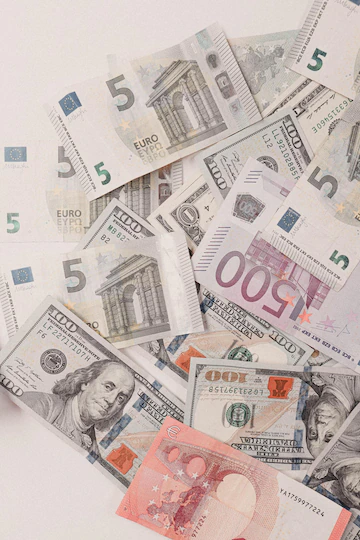Export and Import Inflation
Export and import inflation is one of the reasons of domestic inflation. Imported inflation means the transfer and contagion of the global recession to the economy of each country. This type of inflation happens over time that the cost of some goods increases due to some natural factors or economic decisions. Increase in inflation result to an increase in the cost of production or an increase in the price of consumer goods. For example, the increase in the price of oil has caused an increase in the price of petroleum products, food raw materials and as a result the price of final goods such as petrochemicals, car paint and steel.
Imported Inflation Transfer Methods
a) Through Foreign Trade
Foreign trade consists of two parts: imports and exports. According to the type of goods, imports directly and indirectly affect domestic inflation. Indirect inflation is when, firstly, an increase in the price of raw materials causes an increase in the cost of production, secondly, the price increase is passed on to consumers, and thirdly, it is done through exports. The increase in the price of imported goods affects the producer’s price index, which can transfer the increase in the price of imported materials to the price of final goods by using the industrial and commercial structure of suppliers.
b) Import Inflation Caused by Balance of Payments Deficit or Surplus
The imbalance in the balance of foreign payments provides the grounds for inflation. If the balance of foreign payments has a deficit, the value of the national currency will decrease, and then it will increase the price of imported goods. On the one hand, this causes internal inflation, and on the other hand, with the decrease in the value of the national currency, domestically produced goods become cheaper for foreigners and the country’s exports increase. Finally, it is possible to increase the price of goods and decrease the supply in the domestic market. If the balance of foreign payments faces a surplus, the society reaches incomes that due to the high desire to consume and low desire to save, people’s receipts in the form of purchases in the market will increase the price.

Effective Factors in the Price Index of Imported Goods
1. Currency Rate
The exchange rate is the link between national and global economies. A circle whose quality and quantity directly and indirectly affects the determination of domestic prices of commercial goods, supply and demand of goods and services, and is effective on the performance of the national economy. In the country of Iran, where the government’s income is provided by foreign exchange earnings, when the oil export income or the exchange rate increases, It affects the financial situation of the government and its expenses, and the exchange rate changes from the place of sale of the products and affects the deficit or surplus.
2. Inflation of the Exchange Party Countries
The price index of goods of exporting countries is effective in the rate of inflation. When inflation increases in trading countries, the price of traded goods affects the price increase. Iran’s largest trading partners in terms of import value in 2016 are the United Arab Emirates, Germany and China that 23.64, 10.9, and 8.84 percent of Iran’s total imports, respectively. In 2007, these countries experienced inflation rates of 11, 2.2, and 6.6. The United Arab Emirates is in the first place of the trading countries both in terms of inflation and the value of imports. Emirates with inflation and a high share of exports, plays a significant role in inflation.
3. Customs Tariff
The customs tariff is imposed to support domestic products and to prevent the illegal entry of imports into the country and consists of two parts; Commercial profit and basic rights. The basic rights are determined based on the decisions of the Islamic Council and are 4% of the value of imported goods for all goods. But the commercial profit is variable under the supervision of the cabinet. The higher the customs tariffs, the higher the amount of customs duties and as a result the price of imported goods for the consumer will increase.

Up To Sum
The effect of the increase in the price of imported goods on inflation cannot be denied, but it can be controlled with appropriate policies. The policies that we can adopt in the short term and overcome the effects of rising prices include the following:
1. Changing and reducing customs tariffs should be considered. This work is examined in two ways. First, the price of imported products and goods for consumers will decrease and the upward trend of the general price level will stop. Secondly, in order to provide Iran’s economy and create a competitive environment for joining the World Trade Organization, necessary preparations are being made.
2. Change in the countries of the exchange parties is necessary. We must establish trade relations with the countries that have the lowest inflation rate, to avoid further inflation, we must expand the trade level with countries that are members of economic organizations, including ECO. The aim of such organizations is to develop regional markets and reduce international tensions. It is necessary to form trade policies around economic unions in which Iran is a member.


